
Hitachi Chemical Advanced Therapeutics Solutions and apceth Biopharma entered into long-term development and manufacturing services agreements for the clinical and commercial supply of multiple bluebird bio therapies.

Hitachi Chemical Advanced Therapeutics Solutions and apceth Biopharma entered into long-term development and manufacturing services agreements for the clinical and commercial supply of multiple bluebird bio therapies.

The companies have entered into a manufacturing agreement to supply leronlimab, an investigational new drug currently being used in clinical trial protocols for COVID-19.

The new cell-line producing platform enables fully scalable production of high-performance adeno-associated virus vectors.

The goal of the collaboration is to manufacture up to one billion does per year of mRNA-1273, Moderna’s vaccine against the novel coronavirus.

Pumps and other components meet the demands of single-use systems in biopharmaceutical downstream processing.
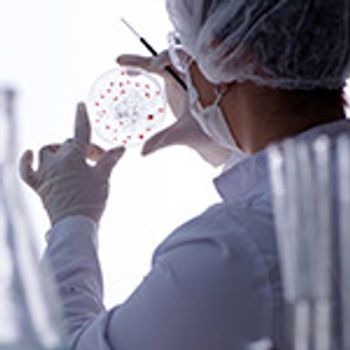
Synthetic biology has advanced the scope and scale with which biologically derived therapeutics can be developed.
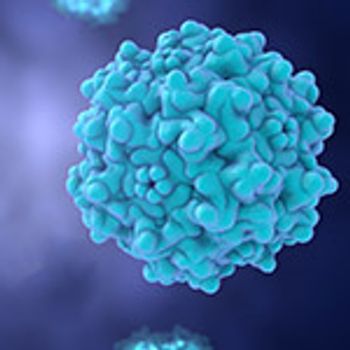
Viral vectors show promise as a delivery mechanism for gene therapy, but which virus types are commercially viable?

Solentim and ATUM will bundle together the Leap-In Transposase platform with the VIPS single cell cloning instrument for cell line development.

This milestone achievement will allow the companies to move forward with developing a GMP-compliant manufacturing process for clinical testing.
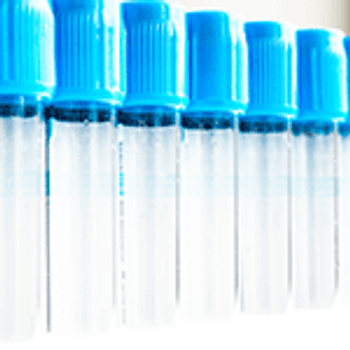
A variety of assays should be used to detect bacterial, fungal, and viral contaminants in the human source cells used for cell therapies.

The new patented process results in uniform, scalable production and the ability to deliver cell cargo similar to natural exosomes/extracellular vesicles.

Emergent BioSolutions will help develop and manufacture an oral vaccine candidate and will develop plasma-based antibody therapeutics.

The new BIOSTAT STR Generation 3 with BIOBRAIN bioproduction platform offers process intensification with automated feed and bleed and integrated cell retention functionality.

FDA issued a notice to drug compounders regarding the transition of licensure of biologics to the Public Health Service Act.

The technology enables the rapid production of large numbers of recombinant antibodies at 80-mL scale.

Better understanding and control of cell behavior is yielding benefits, upstream and beyond.
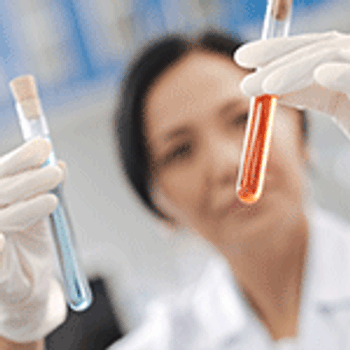
The future of raw material sourcing for mAb production may lay in the sustainability of the source and the added benefits of newer technologies.

Ensuring the quality of data in process monitoring and control systems starts in process development phases.

Single-use and modular systems will meet demand for rapid implementation at different scales.

The expansion gives the company diversified capacity running cell production lines featuring Sartorius-brand 2000-L disposable bioreactors and now GE-brand 2000-L single-use bioreactors.

The company presented data on its G2 glycosylation studies at the 15th European Conference on Fungal Genetics in Rome on Feb. 19, 2020.
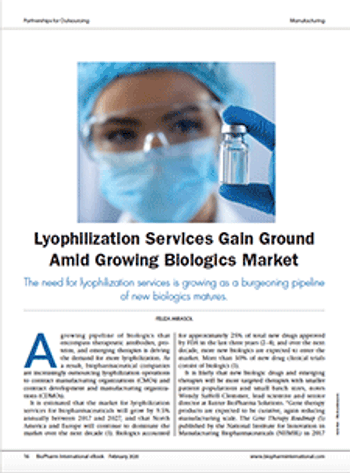
The need for lyophilization services is growing as a burgeoning pipeline of new biologics matures.

The company has said that all three of its operating sites in China started back up on Feb. 12 and that it is closely monitoring the outbreak.

The new facility includes six classified environment rooms with space to expand.

The trend toward personalized medicines includes more complex manufacturing cycles that can benefit from advanced process modeling early on in the therapeutics’ development.